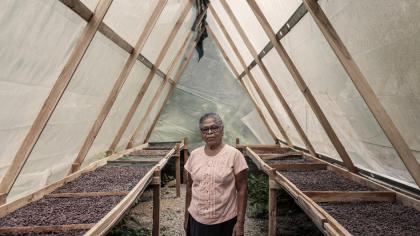
Description
Goal 8 is about promoting inclusive and sustainable economic growth, employment and decent work for all.
Multiple crises are placing the global economy under serious threat. Global real GDP per capita growth is forecast to slow down in 2023 and with ever increasing challenging economic conditions, more workers are turning to informal employment.
Globally, labour productivity has increased and the unemployment rate has decreased. However, more progress is needed to increase employment opportunities, especially for young people, reduce informal employment and labour market inequality (particularly in terms of the gender pay gap), promote safe and secure working environments, and improve access to financial services to ensure sustained and inclusive economic growth.
Agencies, Funds and Programmes
Regional indicators
Activities
-
-
-
Activity























